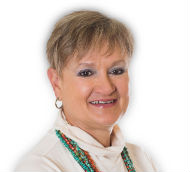Leading Elder Law & Estate Planning Lawyer Michele Ungvarsky Highlights Probate Checklist Essentials – Las Cruces, NM
Top Elder Law & Estate Planning Lawyer Michele Ungvarsky founder of E-Law in Las Cruces, NM, outlines the essential steps that an executor needs to go through to enable them to settle an estate. For more information please visit https://www.estradalawpc.com

Las Cruces, NM, United States – February 28, 2021 /MM-REB/ —
When a person dies, a nominated Personal Representative (executor) will need to take several steps to enable them to settle the estate, so a checklist of what to do is essential, Michele Ungvarsky, founder of E-Law in Las Cruces, NM, revealed.
For more information please visit https://www.estradalawpc.com
Ungvarsky spotlighted several areas that need attention by the Personal Representative. A Personal Representative is appointed by a court to manage a Will and the probate process to authenticate a last Will and Testament of someone who has died.
Firstly, a Personal Representative needs to file a petition to open the probate of the estate. Usually, this means a trip to your nearest probate court as soon as possible after the person’s death to file a petition. Most probate courts will have forms available for a fee to begin the process.
A probate judge will review the original Will to confirm the Wills validity, allowing all relevant parties to file any objections against the Will being probated. The original Will must be provided to the Court; copies are not acceptable. A death certificate must also be provided to the Court.
An essential part of an executor’s role will include locating and taking possession of all the deceased person’s assets to protect them throughout the probate process. The Personal Representative must also notify all possible heirs of the estate in compliance with the probate statute.
Ungvarsky added: “A Personal Representative is acting in a fact-finding role, so that will include finding hidden assets which the deceased didn’t disclose or reveal in their Will.” The “fact-finding” will include sifting through bank statements, tax returns, insurance policies, and more to build up a financial picture of a dead person’s estate.
The Personal Representative must establish if there is any debt against the estate. A Personal Representative will need to identify and contact the deceased’s creditors,” she advised. Creditors must be contacted and informed of the death, and notice must be published in a local newspaper to notify unknown creditors.
With all the financial details to hand, a Personal Representative can then begin to use the estate’s funds to settle outstanding bills and debts of the deceased, she said, as well as preparing and filing tax returns for the year the decedent passed away. The Personal Representative must provide all beneficiaries with accounting and appraisal of the assets.
When questioned on the way forward, Ungvarsky asserted: “The Personal Representative will need to file a proposed distribution with the Court and the beneficiaries to legally distribute what is leftover from the decedent’s assets to any beneficiaries specified in the Will. This proposed distribution will allow any beneficiary to question the assets of the estate before they are disbursed.”
While the checklist is not an exhaustive list, Ungvarsky advised Personal Representatives to consider contacting an experienced probate attorney to ensure they are doing everything right and obtain further guidance.
Source: http://RecommendedExperts.biz
Contact Info:
Name: Michele Ungvarsky
Email: Send Email
Organization: E-Law, PC
Address: 1340 Picacho Hills Dr, Las Cruces, NM 88007
Phone: 575-556-2462
Website: https://www.estradalawpc.com
Source: MM-REB
Release ID: 88998540